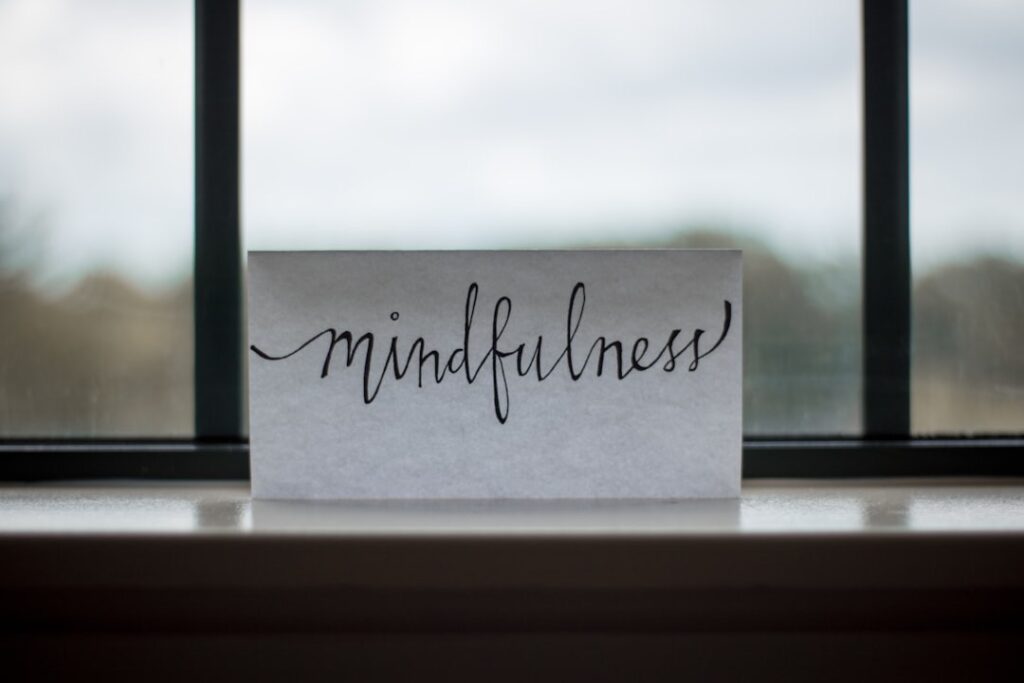The Power of Mindfulness: How to Bloom in a busy world

In today’s fast-paced world, it’s easy to feel overwhelmed and disconnected from ourselves. Between constant notifications, deadlines, and responsibilities, finding moments of peace can feel like an impossible task. But there’s a simple practice that can help you reconnect with your true self and bring calm to the chaos: mindfulness.
Mindfulness isn’t just a buzzword—it’s an ancient practice that is more relevant than ever. It’s about being present in the moment, embracing each experience without judgment. When practiced consistently, mindfulness can transform how we live, work, and connect with others.
What is Mindfulness?
At its core, mindfulness is the practice of being fully present in the moment—observing your thoughts, feelings, and surroundings without distraction. It’s about acknowledging the here and now, rather than getting lost in what happened yesterday or worrying about what’s to come.
By being mindful, you allow yourself to pause, breathe, and truly experience life in all its glory. This awareness helps you break free from the autopilot mode many of us get stuck in, enabling you to make intentional choices and feel more grounded.
Why is Mindfulness Important?
In a world that often feels out of control, mindfulness offers a way to regain control of your mental and emotional state. Here’s how:
- Reduces Stress: Mindfulness helps to lower cortisol levels, the hormone associated with stress. By practicing mindfulness, you can lower your stress levels, reduce anxiety, and find peace in even the busiest moments.
- Increases Focus: When you train your mind to focus on the present, you’ll naturally improve your attention and concentration. This can help you become more productive, creative, and efficient in your daily tasks.
- Enhances Emotional Health: Mindfulness fosters self-awareness and emotional resilience, making it easier to understand your emotions and respond to them in healthy ways.
- Promotes Better Physical Health: Studies have shown that mindfulness can lower blood pressure, reduce chronic pain, and boost overall health, creating a holistic sense of well-being.
How to Practice Mindfulness Every Day
You don’t need to set aside hours for meditation to experience the benefits of mindfulness. There are simple ways to incorporate it into your everyday routine:
- Mindful Breathing: The simplest way to practice mindfulness is to focus on your breath. Try this: sit quietly for a few moments, close your eyes, and breathe deeply. Inhale for four seconds, hold for four seconds, then exhale slowly. This can help calm your mind and body, bringing you back to the present.
- Mindful Eating: Eating can be a deeply mindful experience. Instead of rushing through meals, slow down and savor every bite. Notice the flavors, textures, and aromas of your food. This practice not only makes meals more enjoyable but can also help improve digestion.
- Mindful Walking: Turn a simple walk into a mindful experience. Pay attention to each step, the feel of the ground beneath your feet, and the sounds around you. Walking mindfully can help clear your mind and reduce stress.
- Mindful Technology Use: In our digital age, it’s easy to get lost in our devices. Try to become aware of how often you reach for your phone and how it makes you feel. Set boundaries for phone usage, and take breaks to reset and recharge.
The Benefits of Living Mindfully
The beauty of mindfulness is that it’s not just about reducing stress or improving focus—it’s about cultivating a life that’s richer and more fulfilling. By bringing mindfulness into your daily routine, you start to:
- Feel more connected to yourself and the world around you.
- Approach challenges with a clearer, more focused mind.
- Develop a greater sense of gratitude and appreciation for the present moment.
- Cultivate better mental, emotional, and physical health.
Mindfulness for Personal Growth
Mindfulness isn’t just for calming moments; it’s also a tool for personal growth. It allows you to take a step back, assess where you are in life, and make more thoughtful decisions. It’s about living in alignment with your values, making intentional choices, and letting go of the things that no longer serve you.
Incorporating mindfulness into your daily life isn’t about perfection—it’s about progress. Start small and find simple ways to be more present in your day. Over time, you’ll see how mindfulness can shift your perspective and help you live a more balanced, fulfilling life.
Takeaway:
Mindfulness is a powerful practice that allows you to slow down and reconnect with what truly matters. Whether it’s through mindful breathing, eating, or simply being present in your everyday activities, the practice of mindfulness can improve your mental and emotional well-being, reduce stress, and increase happiness. By incorporating mindfulness into your life, you create space for growth, healing, and transformation—helping you bloom into your best self.